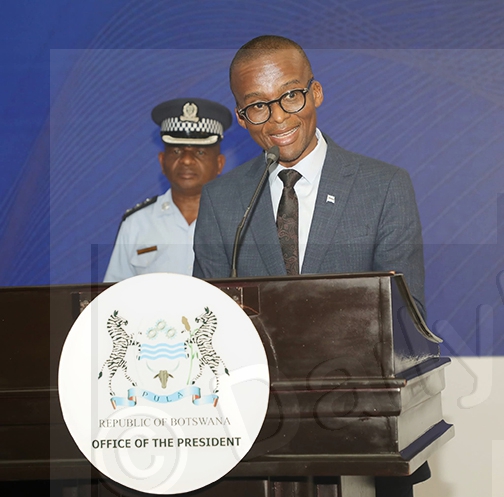Ministry secures funds to finance deficit
10 Aug 2023
Ministry of Finance has approached the African Development Bank (AfDB) for a loan facility amounting to more than P2 billion to finance part of the country’s projected budget deficit.
This was revealed by Minister of Finance, Ms Peggy Serame when presenting the second reading of the Economic Recovery Support Programme (AfDB) phase II (Loan Authorisation) Bill, 2023.
“The budget speech for the financial year 2023/2024 projected a deficit of P7.59 billion or 3.06 per cent of the Gross Domestic Product (GDP). Macro economic focusts further predict a budget deficit in the short to medium term before returning to budget surpluses,” said the minister.
She said the deficit, together with the significant reduction of the Government Investment Accounts, inevitably left government with limited options to finance them.
She said the objective of the bill, which was published in the government gazette of 12 July 2023, was to authorise the raising by government of a loan from the AfDB for the purpose of budget support for the Economic Recovery Support Programme (ERSP), adding that it was a follow-up to the first tranche that was approved by Parliament.
She said the loan was required to finance part of the projected 2023/2024 budget deficit through a combination with other domestic borrowings.
“The Ministry of Finance carried out an analysis of the terms and conditions of the loan and concluded that they were affordable,” she explained.
She said the terms and conditions of the loan included a variable interest rate which was currently 5.06 per cent plus a variable spread based on the AfDB funding cost which was at 0.75 per cent.
She said it resulted in a total interest rate of 5.81 per cent and a commitment fee of 0.25 per cent charged on the undisbursed loan balance through a front earn fee of 0.25 per cent charged on the full amount of the loan.
She added that it was undeductable before disbursement of the proceeds and that it was for a repayment period of 15 years, excluding the grace period of four years.
“As per the terms of the loan authorisation bill, the proceeds of the loan are to be adjusted into the development fund,” she said.
Minister Serame also explained that the ERSP was designed as a programmatic series of two consecutive budget support operations covering fiscal years 2021/2022 to 2022/2023. The ERSP phase II, she said, was the second phase of the two series. She noted that the first was ERSP I that was signed on 3 February 2022.
Ms Serame said the objective of ERSP II remained consistent with the original programme of structural reforms, adding that the proposed programme was aimed to support government’s plans for economic recovery and transformation with a focus on improving fiscal efficiency and sustainability to support domestic resource mobilisation, efficiency in public spending and mitigating fiscal risks, including those related to state owned enterprises.
Another focus, she said, was on private sector led agriculture, tourism and industrial sector transformation to support the strengthening of the policy framework for enhanced private sector investment in agriculture and the industrial sector. She added that it would raise productivity, value addition and job creation as well as enhancing economic and social inclusion to support the development of micro, small and medium enterprises.
Additionally, she said, the programme was also designed to support government’s response by assisting to address short, medium and long-term macro economic challenges.
Reforms to be supported, she said, were anchored on the ERSP which outlined short to medium term priorities.
“As at the end of June 2023, the total public debt to GDP stood at 18.60 per cent, comprising of 9 per cent in domestic debt and 9.6 per cent in external debt,” Ms Serame said.
She explained that the debt to GDP ratio compared the country’s total debt to its total output, and that it compared what the country owed to what it produced and therefore measured the country’s ability to pay back its debt without impeding economic growth.
The minister said when Botswana’s debt was assessed using the debt service ratio, the results were consistent with those of the debt to GDP ratio “suggesting that the country’s debt levels are sustainable by international standards.”
She also noted that the country’s debt levels were within the statutory limit of 40 per cent of GDP as set out in the Stocks, Bonds and Treasury Bills Act of 2005, adding that they were also within what was regarded as low according to international standards.
Ms Serame said to ensure continued economic prudence, other measures such as the debt service ratio could be used as a proxy for sustainable debt levels. She stressed that government was committed to maintaining sovereign debt at affordable and sustainable levels.
The minister also expressed gratitude to AfDB and all development partners who had supported the country’s economic and fiscal policy interventions and its overall development agenda.
Going forward, she said, the government would be more inclined to domestic borrowing while being cognisant of associated borrowing costs to develop, grow and deepen the domestic capital market. Ends
Source : BOPA
Author : Lorato Gaofise
Location : Gaborone
Event : Parliament
Date : 10 Aug 2023




